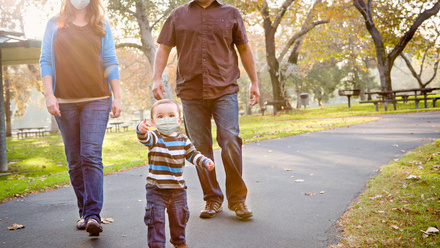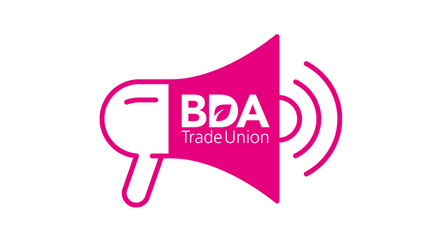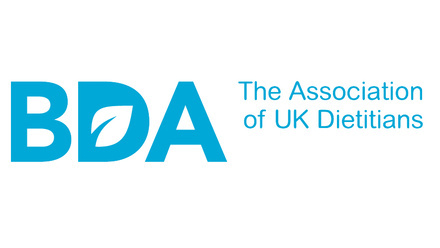Last update 18 May 2021
As COVID-19 continues to impact on the NHS and wider society, advice continues to change. Our primary concern remains, as always, the health and safety of our members and the patients you serve.
We would encourage you to keep abreast of the latest advice. For advice for healthcare professionals in each of the four nations, follow the links below:
- In England, PHE and DHSC have a listing of information for HCP.
- In Scotland, they have created a compendium of advice covering a wide range of COVID-19 advice both nationally and internationally.
- Welsh Government have a range of advice for HCP available here.
- The Northern Ireland Public Health Agency have created a Q&A for HCP
The NHS Staff Council has issued a number of statements which contain relevant advice to those members working in the NHS, including working with patients, updated quarantine guidance and your own working arrangements.
If you are an NHS worker, NHS Employers has published COVID-19 workforce guidance including updated guidance on shielding and supporting vulnerable people.
The BDA continues to work alongside colleagues as part of the AGP Alliance to ensure all health and care staff have access to appropriate levels of PPE to prevent airborne COVID-19 transmission. Read more here.
Vaccination
Several coronavirus vaccines have now received authorisation in the UK and have been rolled out to frontline healthcare workers and vulnerable patient groups.
We are strongly encouraging all BDA members working in patient-facing roles who are offered a COVID-19 vaccine to take it if they can. Large-scale immunisation is a vital step in the effort to control the COVID-19 pandemic and save lives.
Read more about the vaccine and what the BDA is doing to ensure our members receive it.
The following FAQs are designed to cover COVID relevant topics, but please contact us if you have any other questions or concerns.
Self Isolation
What should I do if I need to self isolate?
All members should follow the advice that has been published by the NHS regarding self- isolation.
- If you have an underlying condition and are concerned about being at work then you must speak with you line manager and ask for occupational health advice.
- Remember that your employer has a legal duty under the Health and Safety at Work Act to ensure that they protect the health, safety and welfare of all employees which includes allowing you to self-isolate if you or any of your dependents are vulnerable.
- Further advice and guidance can be found from ACAS and the TUC.
- If you encounter any problems or have any further queries then please speak to you local BDA TU rep or if they are not available then contact the BDA Trade Union.
If I work within the NHS will I be paid if I need to self-isolate?
Yes. This time should be treated as sick leave, and normal sick pay arrangements should apply even if you are not showing any symptoms.
If I work outside of the NHS will I be paid if I need to self-isolate?
Again you are entitled to take this time as sick leave even if you are not showing any symptoms. If you have a contractual entitlement to sick pay then it should be paid. The Government has also announced that as a temporary measure, all employees will be entitled to statutory sick pay from day one of self-isolation.
Advice has also been issued by ACAS which offers some examples of good practice and some simple steps to help protect your own health and safety at work. View ACAS advice here.
Do I have the right to self-isolate?
The TUC have lots of useful information around your rights at work in relation to the coronavirus outbreak. The priority of the trade union movement will always be the health and safety of people. Perhaps the most important aspect around the right to self-isolate may be found below:
“Section 44 of the Employment Rights Act 1996 provides workers with the right to withdraw from and refuse to return to a workplace that is unsafe.”
If you are a pregnant, have an underlying health condition, or have concerns around coronavirus and your employer is refusing to implement reasonable measure to assist you in self isolating please contact the BDA Trade Union team who will assist you. Following public health advice is vital for both your own personal wellbeing and the collective wellbeing of fellow workers and wider society.
Dietetic Practice
Are dietitians identified as key workers?
Yes, health and social care staff are identified as key workers in England, Northern Ireland, Scotland and Wales. See guidance below:
Can I get tested?
Testing for COVID-19 is now widely available. Everyone who has COVID-19 symptoms should be able to access a test. If you work in a key worker role, you can also be referred for a test if you are self-isolating because someone in your household has symptoms, even if you do not. Find out more here.
This is advice taken from the UK Government. This issue is devolved so find out more information here:
Can I use technology to run outpatient/community services?
The use of technology is a good answer to providing services whilst social distancing and self-isolation is essential. There are many options now available for you to remote work, stay in touch with your team and continue to see patients in an outpatient or community setting. To find out more visit our web page on the rapid implementation of digital tools.
What if I need access to evidence-based dietetic resources?
Although the whole of PEN is no longer open access, they will continue to make COVID-19 information, Trending Topics and PEN eNews available with no PEN subscription or access credits required. Visit their website for more information. This is to support those on the front line or working virtually to provide evidence-based care and combat misinformation.
You can also access all of the BDA's guidance on COVID-19 in our clinical guidance hub.
Employment Rights and Wellbeing
What should happen if my employer asks me to undertake reasonable alternative duties?
Any proposed changes should be discussed and planned with local health unions including the BDA as soon as possible. Any work should be within your grade and professional scope of practice. You should also be paid appropriately for any shift work.
Further information is contained within the NHS Staff Council joint statement.
What should I do if I am concerned about the behaviour of my employer around COVID-19?
As your Trade Union, we are here to support you whenever you are concerned about the behaviour of your employer.
Should you have any difficulties at work in relation to the virus, then please speak to your local BDA TU rep in the first instance. If that is not possible, then please contact the TU office. Email [email protected] or call 0121 200 8080.
What if I am asked to carry out a procedure or work in an environment without the appropriate PPE?
You have a right to refuse to do this as your employer has a duty in accordance with the Health and Safety at Work Act 1974 to ensure, so far as is reasonably practicable, the health, safety and welfare at work of all his employees. If you encounter any problems with this or have any further queries then please contact you local BDA trade union rep or failing this the Trade Union office
What if I am concerned about my mental health?
The COVID-19 outbreak means that life is changing for all of us for a while and places increased pressure on front line staff. Here are some resources and simple things you can do to help you to look after your mental health and wellbeing during this uncertain time.
The government announced further funding for staff mental health support in October 2020.
Public Health England have launched a free online training course on Psychological First Aid (PFA) designed for all health and care workers and volunteers. Access the course here.
NHS staff have been given free access to a number of wellbeing apps from now until at least the end of December 2020 to support mental health and wellbeing. Even if you don't work in the NHS, these can be useful tools to support your mental and physical wellbeing.
- Unmind, empowers staff to proactively improve their mental wellbeing and including digital programmes designed to help with stress, sleep, coping, connection, fulfilment and nutrition
- Headspace, is a science-backed app in mindfulness and meditation, providing unique tools and resources to help reduce stress, build resilience, and aid better sleep
- Sleepio and Daylight, are clinically-evidenced sleep improvement programmes that is fully automated and highly personalised, using cognitive behavioural techniques to help improve poor sleep.
Further NHS Resources
- Mental wellbeing audio guides including advice on sleep problems, anxiety control training, low mood and depression
- Mental health apps recommended by the NHS
- Find out more about the health and wellbeing support available to NHS staff here
- NHS Wales have launched a "playlist" of mental health and wellbeing resources
Resources free to all:
Mind
- Guides to support services available including dealing with anxiety, stress and seeking help
- Coronavirus and your wellbeing
Mental Health Foundation
- Looking after your mental health during the Coronavirus outbreak
- Looking after your mental health and wellbeing if you are staying home
- Looking after your mental health while working during the Coronavirus outbreak
Mindfulness Association
- Free daily meditation sessions via Zoom 1900-2000 everyday
I'm concerned a colleague may be suffering domestic abuse, what can I do?
Sadly, isolating and increased time spent at home, combined with financial worries and other stresses is leading to increased rates of domestic abuse worldwide. None of these things are an excuse for abuse, but we should all be more aware of the increased risks.
The physical workplace can normally be a place of safety, but with social distancing measures in place that option may be gone, leaving people isolated from their support networks. However, many are still in contact with their co-workers, union reps and employers – that means we can all play a role in ensuring they and their children stay safe.
The TUC has created an online resource to help you identify when someone may be suffering domestic abuse, and what you can do to help.
National Domestic Abuse Helpline
24 hour helpline (run by Refuge UK): 0800 2000 247
Scotland National Domestic Abuse and Forced Marriages
24-hour helpline: 0800 027 1234
Northern Ireland Domestic Abuse
24-hour helpline: 0808 802 1414
Parents and Guardians
What if I'm pregnant?
If you have concerns about pregnancy and COVID-19 we would recommend you read the latest guidance for healthcare professionals from the Royal College of Obstetricians and Gynaecologists. The RCOG has also produced a series of video FAQs for pregnant women and their families that you may find helpful.
The TUC has important information on pregnancy, maternity and work during COVID-19, including your rights and what your employer should be doing.
If you have any concerns about your pregnancy, contact your GP or consultant as usual.
Dietetic Education
What impact is this having on education providers and learners?
The effects of the new wave of the pandemic continue to be felt within pre-registration education across the four nations. Programme structure, progression and practice-based learning is affected in different ways due to the varying impact of the pandemic on health and social care services across the UK.
You can follow the latest government advice for Higher Education providers:
England: Return of students from January 2021 and NHS Test and Trace channels.
Wales: Welsh Government Higher Education:Coronavirus Guide
Scotland: Scottish Government (COVID-19): universities, colleges and student accommodation providers
Northern Ireland: NI Government Advice for universities & students
In order to minimise any potential risks to practice-based learning, education providers have the responsibility to assess the risks, develop and implement an appropriate strategy that enables learning and assessment standards to be maintained in line with the BDA Curriculum Framework and Health and Care Professions Council (HCPC) regulatory standards. In light of the new wave of the pandemic The HCPC have provided the following information for education providers.
We also have additional BDA guidance to complement the HCPC advice. This advice seeks to address issues specific to the BDA's expectations of accredited programmes, which should work for most. However, given the differences in delivery that exists across programmes, each team will need to consider the implications for themselves locally for whatever plans they choose to implement. In some instances, this will mean thinking through plans for individual learner circumstances.
Additional BDA Guidance for the 2020 academic year is also available for education providers and learners:
BDA advice to pre-registration dietetic education providers: COVID-19: Impact on Learners.
The Chief Allied Health Professions Advisors across the four nations shared a joint letter on 7 December 2020 which encouraged AHPs to support student placement opportunities wherever possible:
You can download the full letter here: Supporting allied health professionals throughout the COVID-19.
The AHP leads published this joint statement with the Council of Deans of Health and the Health and Care Profession Council on how they plan to support and enable the learner AHP workforce to respond to the COVID-19 outbreak. The statement was signed by the Chief Allied Health Professions Officer (CAHPO) of all four countries and sets out ways in which both final year and middle year learners may choose to join the workforce in paid roles whilst enabling them to progress with their studies.
Council of Deans of Health posted a statement on the Government vaccine mandate consultation outcome: November 2021
You can view the full statement here: Government vaccine manadate consultation outcome
HEE guidance for England on how learners can expect to be supported is available as well as HEIW for Wales and NES for Scotland:
England: HEE Student Support Guide - Covid-19 and HEE Covid-19 AHP Student Support Update Jan 2021
Wales: COVID-19 Student Support Guide for AHP's & HCS and HEIW AHP COVID-19 Student Support.
Scotland: Allied Health Professions Practice Based Learning Recovery Plan: Supplying the Future Workforce.
Northern Ireland: CORU Education Update - COVID-19.
As systems and processes are evolving all the time, colleagues are reminded to check these sites regularly for updates.
Freelance and Private Practice
Will I be classed as a key worker if I am in private practice?
No. At present you will only qualify as a key worker if you are working in the NHS. The Government has issued strong advice that children should not attend school or nursery unless their parents are key workers and even they should only do so if they have no viable alternative. If you return to the NHS to assist during this health emergency then you will become a key worker.
HCPC
What about HCPC audits and registration during the pandemic?
Members will understandably be concerned about how they can keep up to date with CPD or have time to submit profiles if chosen for audit at this time. Individuals should continue to comply with their CPD obligations, where time allows and if it is possible to do so. The HCPC have published top tips for completing CPD audit during the pandemic.
Please check with the HCPC Advice on COVID-19 for registrants for the most up to date information.
BDA Events and Services
Can I still contact the BDA?
As part of the government’s advice to restrict all non-essential travel and social contact, all BDA staff are now working from home. We want to reassure members that the BDA has appropriate and secure remote-working technology and processes in place to protect staff while still delivering what members need.
We remain contactable through all the regular channels such as phone, email and social media. So, please rest assured we are still offering our vital support services to our members.
There is also a lot more information available for health professionals:
For public advice relating to nutrition and COVID-19, visit our public advice page.





